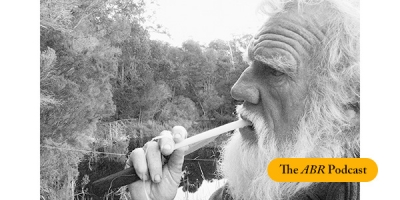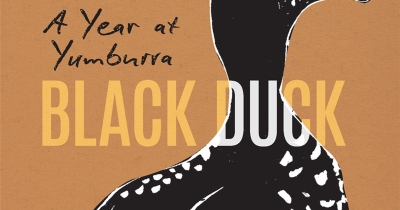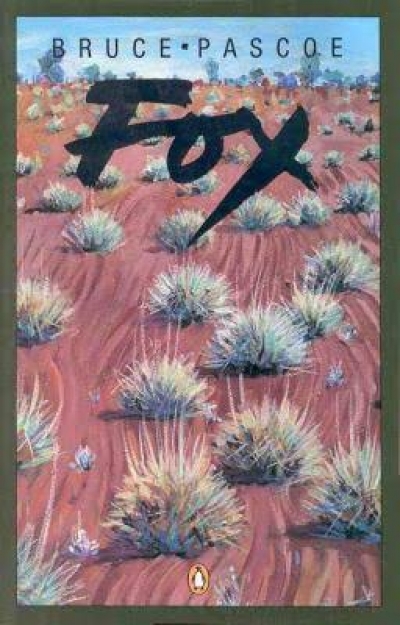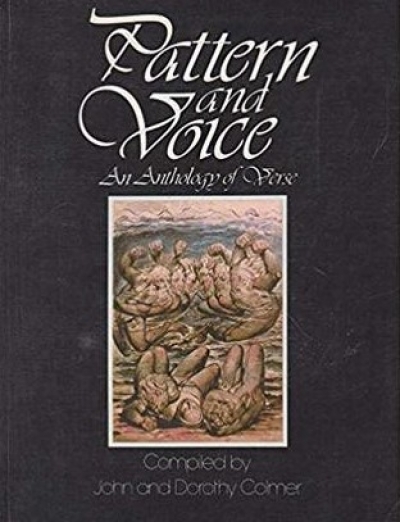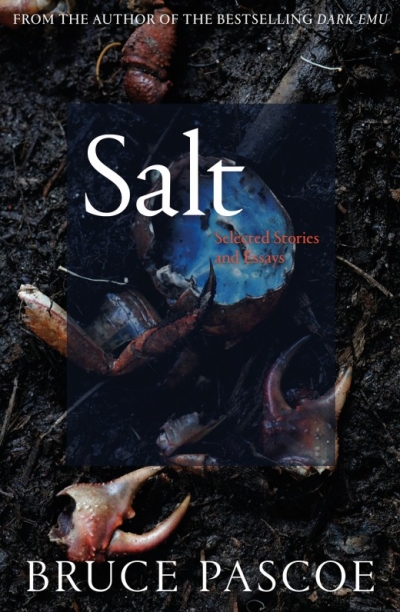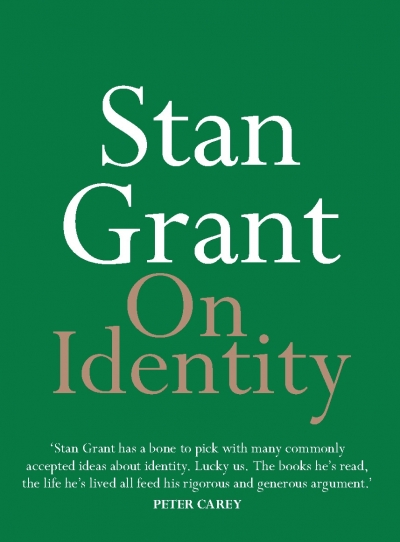Bruce Pascoe
In this week’s ABR Podcast, Seumas Spark reviews Black Duck: A year at Yumburra by Bruce Pascoe with Lyn Harwood. Spark writes: ‘Black Duck is two things: a record of a year in the life of the farm, and a collection of musings on life and Country’. Seumas Spark is an historian at Monash University. Listen to Spark’s ‘Pascoe’s vision: Musings on life and Country’, published in the June issue of ABR.
... (read more)Black Duck: A year at Yumburra by Bruce Pascoe with Lyn Harwood
I'm a whitefella who has never met Bruce Pascoe, but I’ve heard a lot about him. For the past few years, I have worked across Gippsland in the field of Aboriginal cultural heritage, and many of the people I meet mention his name. Experience has led me to try and dodge most of these conversations, knowing that our discussion will probably satisfy neither party, but I’m not having much luck. People want to talk about Pascoe, and often it is unpleasant. I have heard him described as a charlatan and worse, usually by those who have not met him, spoken with him, or read his work. Most of these critics are whitefellas, preoccupied with questioning or discrediting his Aboriginal heritage.
... (read more)It opens with an enigmatic statement – ‘It might take two hundred years’ – (what might?) – and then presents an enigmatic situation. Amidst Australian bush images and scraps of Aboriginal sounding stories, there is someone called Fox wandering around.
Fox, we soon learn, is a young chap called Jim Fox who is making a mysterious trip to Sydney from a farm he once lived on somewhere up the Murray.
He’d expected to be able to just go to places and remain anonymous, for people to just accept his presence as easily as he did theirs, with only the questions which could be answered by your own observations.
He was wrong, of course. People do ask him where he’s from and where he’s headed for and why he’s going there. Fox never says much, but no one minds; people only say affectionately ‘you’re a strange bugger, Fox’ and buy him beers, and give him rides, jobs, money, places to stay, and all the best advice they know.
... (read more)John and Dorothy Colmer have produced Pattern and Voice (Macmillan, $10.95 pb, 234 pp), an anthology of verse which will be of interest to all teachers and students of poetry. It has a blend of classic and contemporary poetry and includes many Australian poets.
... (read more)Few books have had as decisive an impact on the history of Indigenous Australian land management as Bruce Pascoe’s Dark Emu. And yet, as Peter Sutton and Keryn Walshe argue in Farmers or Hunter-gatherers?, the foundations upon which Pascoe builds his account of Indigenous agriculture may be shakier than first thought. In his review of Sutton and Walshe’s book, writer and anthropologist Stephen Bennetts assesses not only their criticisms of Pascoe’s claims, but also the surrounding controversy that has turned a scholarly debate into another theatre in a culture war. What this political furore threatens to obscure is the long tradition of Australian anthropological research that has been essential to the legal restoration of Indigenous land ownership.
... (read more)Bruce Pascoe’s Salt is a wonderfully eclectic collection of new works and earlier short fiction, literary non-fiction, and essays written over twenty years. Structured thematically across six themes – Country, Lament, Seawolves, Embrasure, Tracks, and Culture Lines – Salt moves between the past and the present with Pascoe’s distinctively poetic voice. Readers of Dark Emu (2014) and Convincing Ground (2007) will be familiar with the style and subject matter but will discover newly released or reworked gems.
The title speaks to memories and ghosts triggered by the smell of salt; its ability to clean, to render flesh and skin from bone, to preserve evidence, to signal cumulative impacts on Country. The prevalence of salt speaks to the power and closeness of sea Country and our dwindling salty river systems, increasingly threatened by human intervention. Pascoe’s characters are richly drawn from this salted earth and exposed to the light and the elements. Whether presented as fiction or the voices of shared histories, his characters are grounded within the seasons and Country. So, too, in Pascoe’s view, are their possibilities of reviving this salted earth through heeding Indigenous knowledge and experience.
... (read more)Mum and dad. I still need to talk to them. My kids, Marnie and Jack. Best meal was scallops and a few beers with my son at Huonville on a pontoon in the river.
... (read more)It was a great moment in Australian history when William Cooper walked to the Australian parliament to object to the treatment of Jews in Germany during World War II. At the time, the British and Australian parliaments were ambivalent about the atrocities occurring across Europe ...
... (read more)Animals and friends are a perennial subject in children’s literature, and the junior novels and series books reviewed here highlight those interests. Most of these titles, however, are also notable because they are told with humour, even whilst exposing the anxieties of children.
Fog a Dox (Magabala Books, $19.95 pb, 111 pp, 9781921248559) is a new novel for primary-aged children by esteemed Indigenous writer Bruce Pascoe. The intriguing title springs from fox cub Fog, one of three pups rescued by ‘tree feller’ Albert Cutts and reared by his dingo-cross dog, Brim. Fog’s vixen sisters leave when they are old enough to survive on their own, but Fog stays, balancing his fox instincts with learned dog behaviour; Albert describes him as a ‘dox’.
... (read more)We came for a death,
climbed the highest mountain
cast ash
reclined on a granite slab,
our old faces tinted rose
pinked by a collapsing sun.
And for our mate, scattered about us,
grey wafers for our communion,
a slow recitation of the mountains spread,


